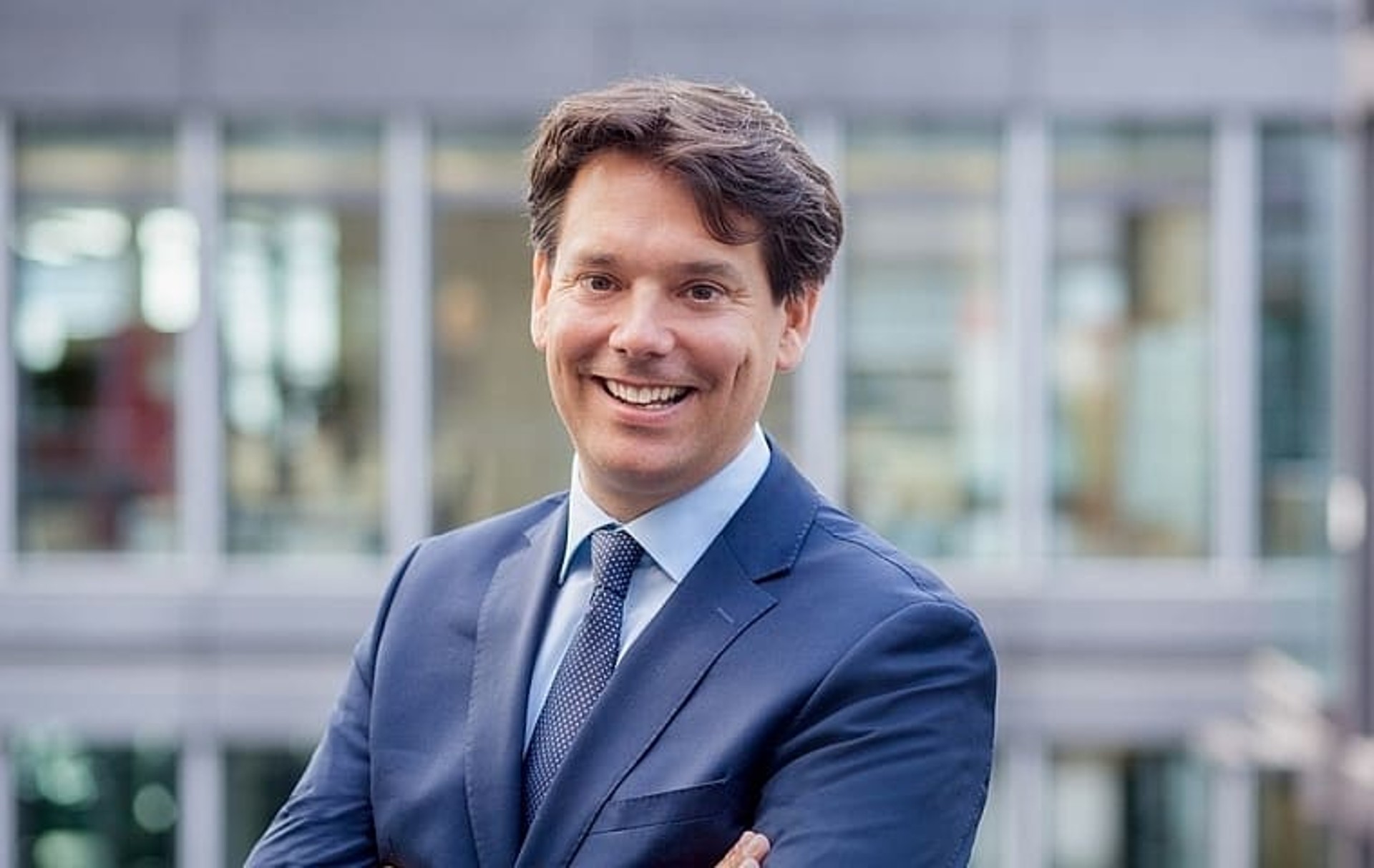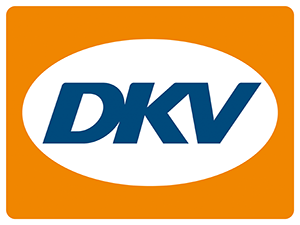Thinking the present from the future

Professor René Schmidpeter is an internationally recognized CSR strategist, thought leader, speaker and author. For over 20 years he is committed to integrate socially relevant issues into business management. As a member of various think tanks, international networks, and academic institutions his ambition is to promote a new management paradigm that overcomes the old trade off thinking between profit and sustainability. In his projects he works closely with companies on the sustainable transformation of business models, strategies, and management tools. The permanent exchange with people who want to change the future is important to him. Since 2021 he holds the professorship for Sustainable Management at IU International University. For Newsroom he shared why sustainability and profitability are not a trade off and how sustainability is becoming the biggest business opportunity of this millennium. Watch the video for whole interview.
Newsroom: Sustainability is about implementing strategic concepts. Germany is very good in strategic planning, but still the Ministry of Construction and the Ministry of Transport, have missed their climate targets for 2021. What do you think is the reason for this and why are we struggling so much achieving sustainability and climate targets?
Prof. René Schmidpeter: It was not the first time we missed our goal. I think we missed out the last 20 years. Already by then it was pretty clear that we need to transform our society. Especially in the last ten years, there was no real progress. I think it's mostly related to the mindset. People still see a tradeoff between sustainability and profitability. They think that you can either be profitable or sustainable.
Newsroom: You say that sustainability needs the willingness for transformation. This means it is not only about doing things better or different, but more about the question to what degree are we, as a German or European economy, ready for transformation and not just optimization?
Prof. René Schmidpeter: Maybe it's not a question whether we are ready or not. I think in history, transformation just happens. If you look how we transformed from an agricultural society to an industrialized society: Most of the people also were not ready for this, but we somehow achieved it. And now we are actually at a similar point in history where we have to go from an industrialized society to a sustainable knowledge society. I think not all people understood by now that it is not.
Newsroom: Are there certain industries or sectors who are already doing good and overcoming this integration challenge? And as mobility and transport sector, where are we standing regarding transportation and mobility with this integration challenge?
Prof. René Schmidpeter: In all the different industries most of the time you need a problem as a trigger point for change. As long as there is no problem and the old-fashioned business models are working, people don't understand that they need to change. But once the old-fashioned models are not working any longer because new markets are deriving and new customer wishes are changing the demand, people have to think about change. Now we have other triggers such as the international supply chains who are breaking, or inflation, the limited amount of energy available. As hard as this sounds, these are good drivers of change. Unfortunately, sometimes we only learn it the hard way.
Of course, there are also examples of industries who are very proactive. For example, in the field of digitalization or in the certain field of biochemistry, these young Start-ups in new innovative industries are more also into sustainability. This shows that sustainability is actually a driver for innovation. The more innovative an industry is, the more they also focus on sustainability. And the more they focus on sustainability, the more innovative they are.
And in the mobility sector, you can see both at the same time. Some are still struggling and trying to somehow keep the old business models, like building big cars and trying to find customers for it. But others are already going a step further. They are building platforms, how to share cars, implement new electric mobility or automotive driving. There's a lot of innovation, but it mostly comes from, I would say, small or medium sized enterprises who have to change because that's the only way how they will survive in the future.
Newsroom: You mentioned digitalization as a keyword. Could you elaborate how you see sustainability and digitalization connected?
Prof. René Schmidpeter: We see this kind of crossroad from the industrial society entering into a sustainable knowledge society. Therefore, you cannot have the one or the other. Basically, you need both. You need the digitalization, but you need it in a sustainable way. But what does this mean? It means we can use digitalization to make our processes, products, business models more sustainable. We can, for example, control the supply chain much better than in the past. We can also find better ways to the customer. We can also, of course, use big data and artificial intelligence to get to new ideas, how to make things more sustainable.
We really have to be careful that we also reflect ethically what we are doing when we are digitalizing things. And that's why we need a responsible digitalization. You need responsible AI, responsible big data. In the future we will see a lot of responsible digital circular business models. But of course, you also need different competencies and we need also this kind of teamwork in developing this new kind of business models and strategies.
Newsroom: Especially looking at the challenges of the transport sector, there's lots of things happening with the new legislation coming in via the European Green Deal and we are very aware of the Paris climate agreement targets. What do you think specifically where this sector will be heading in the future?
Prof. René Schmidpeter: Mobility as such is a thing which is very important for society. We need to transport goods. We want to travel.
Newsroom: So mobility is life?
Prof. René Schmidpeter: It's part of our life. And we really should appreciate mobility. All the studies show that mobility will further rise in the future. It is no possibility that we reduce mobility. Also, this would be not good for a free and open society. We need to find ways how we can have more mobility, more freedom, more ways to move goods and also more ways to trave. At the same time, we need to try to decouple it from unsustainable energy use. I think this is basically this kind of tradeoff we have to overcome. We don’t have to reduce mobility, but we have to try to find ways for sustainable mobility. This need to overcome the old dependency on fossil fuels and all those kinds of old-fashioned industrial things. That will be a challenge, for sure.
Newsroom: Often people say that sustainable behavior is personally sacrificing things. What's your opinion on this?
Prof. René Schmidpeter: Obviously not, because sacrificing is not sustainable. If you sacrifice profit, it's not economically sustainable. If you sacrifice a good life, it's not good for your social and psychological mind. We really should see that the future has so many opportunities, so many positive ways, how we can live in the future by using technology, but by also using our mind and developing new businesses that we should not only look at this resources, we also should look at the opportunities. I think this is a change of perspective. If you look at the opportunities we will have in a sustainable future, in the in the future society this will really lead to not sacrificing. It will lead to a better life with less resources and a lot of business opportunities. I think sustainability is really becoming the biggest business opportunity of this millennium.
Newsroom: Thinking in opportunities, new business models and being optimistic, is this a good survival strategy for companies who are thinking about a sustainable business models?
Prof. René Schmidpeter:Fear is never a good advisor, as we learned the last couple of years. We really need to have a positive leadership which is also purpose oriented. We have to give the people some purpose, other than the business. What is the purpose I'm standing for? What is my goal? And it should be always about serving other people, serving the society, developing new positive impacts. This is a new dimension. We really should not only think about profit anymore, but we should start seeing the overall impact a company has. What is the social, environmental and the knowledge impact?
By seeing this, we really can transform our business models in a way where we combine sustainability and profit. With the right model the profit can even be increased, while at the same time having a positive impact for our environment and the world. This is giving a lot of purpose. People will be much more motivated, and this will attract new employees. There are enough investors that are looking for this kind of business models. I don't see why sustainability should be sacrificing. It's rather the opposite.
Newsroom: So everybody can drive the transition towards an efficient and sustainble future of mobility.
Prof. René Schmidpeter:I really believe that the more people are getting into this field, the more we really win. And it's not about win lose anymore. It's more like we can either win together or lose together. Of course, it is much more fun to win. Therefore, I hope many people will join in and win together with us. The game we have right now is really challenging as there are multiple crisis’s we have to overcome. Winning is only possible by a real transformation, a new set up of our economy. But that's something I think we now already know from the news. Also, I do hope that the politicians will find the right frameworks to support this transformation.
